Tiếng Anh 10 Friends Global Unit 1 Từ vựngTổng hợp Từ vựng Unit 1 Tiếng Anh lớp 10 Friends Global Tổng hợp đề thi học kì 2 lớp 10 tất cả các môn - Chân trời sáng tạo Toán - Văn - Anh - Lí - Hóa - Sinh - Sử - Địa... 1A 1.  2. (v): mô tả The next section describes our findings in detail. (Phần tiếp theo mô tả chi tiết những phát hiện của chúng tôi.)  3. (n): tốt nghiệp My whole family came to my graduation. (Cả gia đình tôi đến dự lễ tốt nghiệp của tôi.)  4. (adj): lo lắng The bus was late and Sue began to get anxious. (Xe buýt bị trễ và Sue bắt đầu lo lắng.)  5. (adj): hổ thẹn I feel almost ashamed that I've been so lucky. (Tôi gần như cảm thấy xấu hổ vì tôi đã quá may mắn.)  6. (adj): chán nản There was a bored expression on her face. (Vẻ mặt cô ấy lộ rõ vẻ chán nản.)  7. (v): nhầm lẫn These two sets of statistics are guaranteed to confuse the public. (Hai bộ thống kê này được đảm bảo sẽ gây nhầm lẫn cho công chúng.)  8.  9. (n): Hân hoan She couldn't hide her delight at the news. (Cô không thể giấu được sự vui mừng trước tin tức này.)  10. (adj): Thất vọng The singer has promised to refund any disappointed fans. (Nữ ca sĩ đã hứa sẽ hoàn tiền cho bất kỳ người hâm mộ thất vọng nào.)  11. (v): khó xử I didn't want to embarrass him by kissing him in front of his friends. (Tôi không muốn làm anh ấy khó xử bằng cách hôn anh ấy trước mặt bạn bè của anh ấy.)  12. (adj): ghen tị They were envious of his success. (Họ ghen tị với thành công của anh ấy.)  13. (v): kích thích Try not to excite your baby too much before bedtime. (Cố gắng không kích thích trẻ quá nhiều trước khi đi ngủ.)  14. (v): hoảng sợ Sorry, I didn't mean to frighten you. (Xin lỗi, tôi không cố ý làm bạn sợ.)  15. (adj): hãnh diện The girls have made me extremely proud. (Các cô gái đã khiến tôi vô cùng tự hào.)  16.  17. (adj): khó chịu I was upset at missing all the excitement. (Tôi đã rất khó chịu vì bỏ lỡ tất cả sự phấn khích.)  18. (n): hạng mục These are the nominees from each category. (Đây là những người được đề cử từ mỗi hạng mục.)  19. (n): kết quả This book is the result of 25 years of research. (Cuốn sách này là kết quả của 25 năm nghiên cứu.)  20.  21. (n): vé They raised over £40,000 in ticket sales alone. (Chỉ riêng họ đã thu được hơn 40.000 bảng Anh tiền bán vé.) 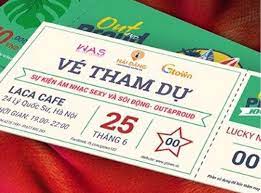 22. (v): tranh luận I know it was a stupid thing to argue about. (Tôi biết đó là một điều ngu ngốc khi tranh luận.)  1B 23. (adj): khẳng định I can use the post affirmative. (Tôi có thể sử dụng bài khẳng định.)  24. (adj): lớn And for a few unlucky people, a huge lottery win was the start of major problems. (Và đối với một số người kém may mắn, một chiến thắng xổ số khổng lồ là khởi đầu của những vấn đề lớn.)  25. (v): tiêu, bỏ ra He stopped working, spent the money quickly and had terible arguments with his family and friends. (Anh ngừng làm việc, tiêu tiền nhanh chóng và có những cuộc tranh cãi gay gắt với gia đình và bạn bè.)  26. 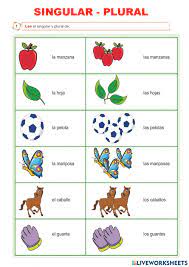 27. (n): số nhiều The plural of ‘child’ is ‘children’. (Số nhiều của ‘child’ là ‘children’.) 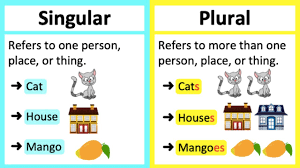 28.  29. (n): cuộc đua Hundreds of schools entered the competition. (Hàng trăm trường tham gia vào cuộc thi.)  30. (n): triệu phú She's a millionaire several times over. (Cô ấy đã trở thành triệu phú nhiều lần.)  31. (adj): sốc I was quite shocked when I found out what he'd done. (Tôi khá sốc khi biết anh ta đã làm gì.)  1C 32.  33. (adv): bí mật The police had secretly filmed the conversations. (Cảnh sát đã bí mật quay phim các cuộc trò chuyện.)  34. (adj): trực tiếp A face-to-face conversation. (Một cuộc trò chuyện trực tiếp.)  35. (adv): riêng biệt Last year's figures are shown separately. (Các số liệu của năm ngoái được hiển thị riêng biệt.)  36. (adj): mất tập trung Luke looked momentarily distracted. (Luke thoáng nhìn mất tập trung.)  37.  38. (n): sửa đổi He made some minor revisions to the report before printing it out. (Ông đã thực hiện một số sửa đổi nhỏ đối với báo cáo trước khi in nó ra.)  1D 39.  40.  41. (n): màn hình And I couldn’t see the screen very well. (Và tôi không thể nhìn rõ màn hình.)  42. (v): làm rơi I lost my mobile! I think I dropped it in the cinema. (Tôi bị mất điện thoại di động! Tôi nghĩ tôi đã đánh rơi nó trong rạp chiếu phim.)  43.  44.  45. (n): giới từ The preposition usually goes at the end. (Giới từ thường đi ở cuối.) 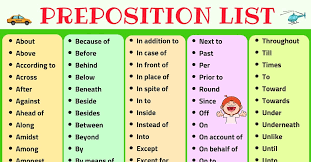 46. (n): đi thuyền They are going on a 10-day sailing trip. (Họ sẽ thực hiện một chuyến đi thuyền 10 ngày.)  1E 47. (n): hành trình They went on a long train journey across India. (Họ đã trải qua một cuộc hành trình dài trên xe lửa xuyên Ấn Độ.)  48.  49. (adj): kinh ngạc She ran 100m in an astonishing 10.6 seconds. (Cô ấy đã chạy 100m trong 10,6 giây đáng kinh ngạc.)  50.  51. (n): tình huống What would you do in this situation? (Bạn sẽ làm gì trong tình huống này?)  1F 52. (adj): không bình thường It's unusual for the trees to flower so early. (Thật không bình thường khi những cái cây ra hoa sớm như vậy.)  53. (n): lựa chọn There are various options open to you. (Có nhiều tùy chọn khác nhau mở cho bạn.)  54. 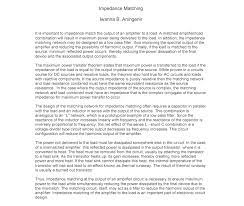 55.  56. (v): xuất hiện Three days later a rash appeared. (Ba ngày sau một nốt ban xuất hiện.)  57. (n): ngón tay She ran her fingers through her hair. (Cô lướt những ngón tay của mình qua mái tóc của mình.)  58. (v): bong gân I stumbled and sprained my ankle. (Tôi đã vấp ngã và bị bong gân mắt cá chân. )  59. (n): rối loạn This is a rare disorder of the liver. (Đây là một rối loạn hiếm gặp của gan.)  1G 60. (v): kể lại She relates her childhood experiences in the first chapters. (Cô kể lại những trải nghiệm thời thơ ấu của mình trong những chương đầu tiên.)  61.  62. (n): sâu bọ There's a bug crawling up your arm. (Có một con bọ đang bò lên trên cánh tay của bạn.)  63. (adj): nản lòng It's frustrating to have to wait so long. (Thật nản lòng khi phải đợi lâu như vậy.)  64. (n): ác mộng He still has nightmares about the accident. (Anh ấy vẫn gặp ác mộng về vụ tai nạn.)  65. (n): thảm họa The world's worst humanitarian disaster. (Thảm họa nhân đạo tồi tệ nhất thế giới.)  66.  67.  68. (adj): tàn ác He was known to be a cruel dictator. (Ông được biết đến là một nhà độc tài tàn ác.)  69. (v): cải trang She was cleverly disguised as a policewoman. (Cô đã khéo léo cải trang thành nữ cảnh sát.)  70. (adv): ngay lập tức She answered almost immediately. (Cô ấy trả lời gần như ngay lập tức.)  71.  1I 72. (n): kỳ vọng We certainly had a reasonable expectation of success. (Chúng tôi chắc chắn đã có một kỳ vọng thành công hợp lý.)  73. (adj): chính xác Accurate measurements are essential. (Các phép đo chính xác là điều cần thiết.)  74. (n): khuôn mẫu He doesn't conform to the usual stereotype of the businessman with a dark suit and briefcase. (Anh ta không phù hợp với khuôn mẫu thông thường của một doanh nhân với bộ vest tối màu và chiếc cặp.)  75. (n): nhà nghiên cứu The study was carried out by researchers at Bristol University. (Nghiên cứu được thực hiện bởi các nhà nghiên cứu tại Đại học Bristol.)  Review Unit 1 76. (n): kết luận He arrived at a different conclusion. (Ông đã đưa ra một kết luận khác.)  77. (n): cuộc khảo sát The results of the survey come as no surprise to us. (Kết quả của cuộc khảo sát không có gì ngạc nhiên đối với chúng tôi.)  78. (n): vách đá We set off along the cliff path. (Chúng tôi bắt đầu dọc theo con đường vách đá.)  79.  80. (n): phong cảnh The mountains dominate the landscape. (Những ngọn núi chiếm ưu thế trong cảnh quan.)  81. (adj): vô cùng The heat in the desert was extreme. (Nhiệt độ trên sa mạc rất nóng.)  82. (n): lợi thế She had the advantage of a good education. (Cô có một lợi thế là một nền giáo dục tốt.) 
|























